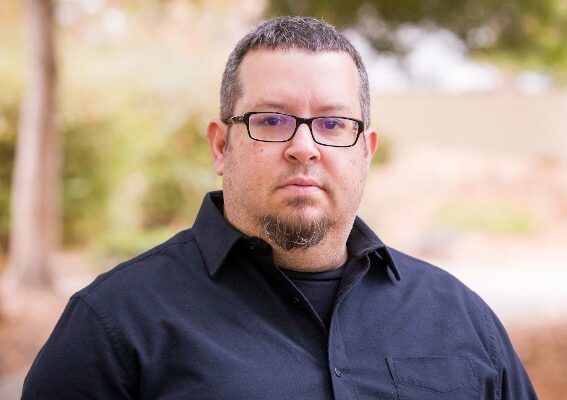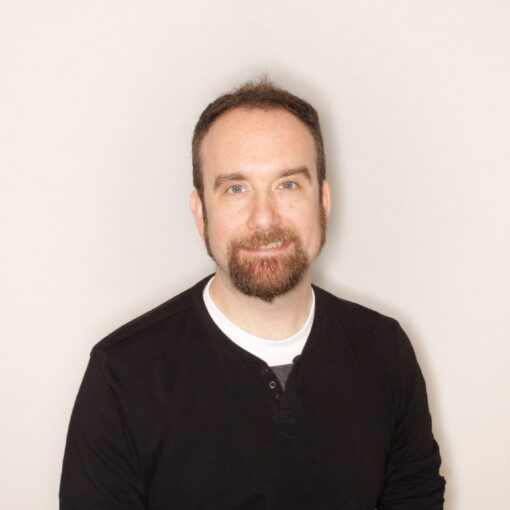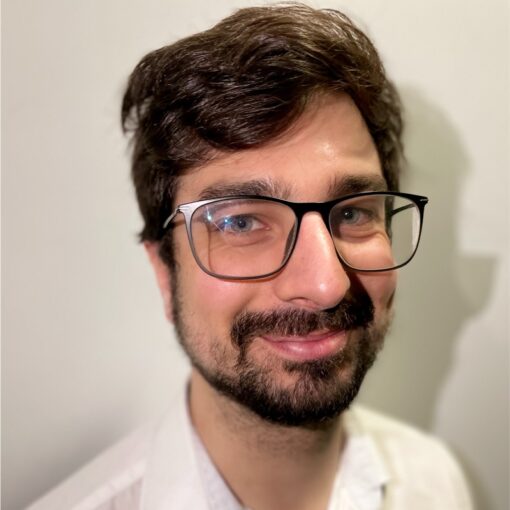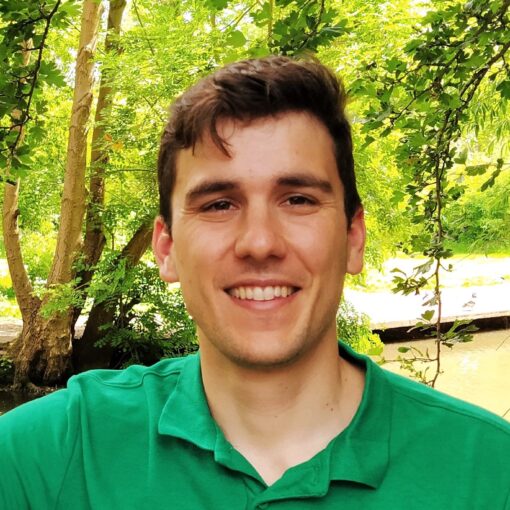PhD
| Founder and CEO | |
|---|---|
| acgtMedia, LLC | |
Year entered into a non-academic position: 2007
Job highlight: I get to create and publish content that helps students make informed decisions about their education and career.
My research training set me up to… have a strong attention to detail and the ability to conduct research into numerous subjects.
What’s your background?
In 2000, I earned by bachelor’s degree in molecular and cell biology with an emphasis in Immunology from the University of California, Berkeley. All throughout my undergraduate program, I knew I wanted to go to graduate school and become a professor. In 2001, I started the Biomedical Sciences program at the University of California, San Francisco and I earned my PhD in 2007. My research examined the role of Septins in T cell crawling and structural integrity.
In 2013, after working for six years, I started my own publishing company. We build resources for students interested in learning more about careers and graduate school. We do research to help students make informed decisions about their future.
Why did you move away from academia?
About halfway through graduate school, after an unfortunate series of mishaps and/or bad luck (e.g., cross-contaminations, cross-reactivities/off-target effects that led to false data), I lost the passion for bench science. Research can be full of highs and lows, and for me personally, there was simply not enough highs to balance out the lows. From that point, I made a conscious decision to finish my PhD, but knew I would not be staying within academia once I graduated.
To this day, I have absolutely no regrets on finishing my degree. While it was hard, it was worth the time and effort.
Is there anything you miss about academia?
For sure, there is actually a lot I miss about academia. One thing I especially miss is the camaraderie with my labmates. When you sit around the same core group of people for five to six years, you get really comfortable. Those people become your surrogate family, you share your highs, and lows, with them.
I also always liked planning out lab experiments, especially those that involved manipulating DNA. I do miss that at times as well.
How did you get this job? Did you face any challenges when considering a move away from academia or applying for the role?
In 2013, six years after leaving academia, I started my own company and I have been self-employed ever since. However, the path from graduate school to running my own business had some twists and turns and more than a few challenges along the way.
As I approached the end of graduate school, I wanted to go into consulting. To prepare for interviews, I started practicing case studies and worked on my analytical skills. After one interview, the feedback I received was that I needed to travel more. My problem-solving skills were great, but I didn’t have enough business experience. At the time, I didn’t understand the feedback and it was frustrating. It was not until I left academia that I understood what they meant. I didn’t have any experience sitting in a room with business professionals.
When I finished graduate school, I had no idea what I was going to do. I spent about two months applying for jobs. I had one company that wanted to hire me as a recruiter, which I didn’t really want to do. I ended up taking an entry-level content editor position with an online marketing company that created resources for life scientists looking for laboratory reagents and equipment.
It was a hard decision to take an entry-level job with a PhD, but I knew I needed to start somewhere. I had just spent six years in graduate school working long hours, so I worked really hard and took as many projects as they would give me. Within two years, I was researching new markets and managing new websites. I learned everything from the ground up, and the skills I learned during that time I still use today.
From there, I went to work for two companies in the Education space where I continued to learn about online publishing and online marketing. After my son was born in 2012, I needed more flexibility to watch him, so I decided to start my own business. As you can imagine, that provided its own set of challenges, but after close to eight years in business, I have absolutely no regrets.
What motivated you to/why did you choose the sector you transitioned into?
When I graduated, I wanted to find a job where I could use my background in research and biomedical sciences, and I wanted to know more about how the Internet worked. While I may not have realized it then, the content editor position was perfect. It allowed me to use my knowledge of laboratory consumables and equipment to transition into a completely new career.
Did you think you had the skills required for your current position before you started? Were you right?
I would say yes and no. While I knew about laboratory equipment and reagents, they wanted me to do search engine optimization (SEO), which was something I had never heard of before I started working. I also had to learn how to use more advanced features in Excel. So, I started watching videos and reading articles on the web. While I never loved reading academic journals, I was used to it, so I started studying and asked my boss if I could start attending conferences. Through watching videos, reading guides, and attending conferences, I learned more and more about SEO and launching websites.
How did your PhD prepare you for your current job? For example, what were the transferable skills that you developed during your PhD that are most relevant to your current job?
In terms of skills, for me, everything comes back to research.
During my time in academia (undergraduate and graduate school), I learned how to do research. That has allowed me the ability to dive into new subjects quickly and identify and interpret key information. That skill along with my attention to detail, which was also a big part of my research , are the most relevant for my current position.
Did you have any preconceptions about your sector that proved to be wrong?
I really did not, because I was entering a completely new field.
Can you describe a typical week in your job?
I spend the majority of my time researching academic programs and reading the content we publish. My company is myself and a full-time editor. We create comprehensive resources and I do all the research on degree programs, while my editor writes and edits content. We also write the majority of our content in-house and I read every piece of content we publish.
What is the workplace culture like? Please include comments on work-life balance, flexibility, remote working?
Since we are a small business, we work fully remote. That is one of the downsides of running your own business, there is less interaction with coworkers. With that said, the flexibility I have running my own business is amazing. I can volunteer at my children’s school, help manage my son’s baseball team, and I don’t have to worry about paid time off for vacations.
Work-life balance can be tough, just as it can for people who are employed or in academia. There is always more work to be done. I could work 24 hours a day, 7 days a week and still have plenty of work to do.
Do people with a PhD frequently get hired in the company/sector?
I think it depends on the sector. When I started as a content editor, there were other PhD graduates who worked for the company in content positions, but we were focused on the life sciences, so there was a really good fit. As I transitioned into the Education space, I have met fewer PhDs and it feels like the ones I have met went into consulting after graduation.
What are your favourite parts of your job?
Building something from nothing. We literally take a URL with nothing on it and turn it into something that is useful and full of great information. That is a very rewarding part of my job.
What are your reflections on your career path?
If you had told me 14 years ago when I finished my PhD that I would be running my own business creating websites with information for students researching degree programs, I would have thought you were crazy. I am where I am today because of my background in research and because of hard work. Have I failed along the way? Most definitely, but with each failure I have learned something that has helped me grow both my business and as a person.
Do you have any advice for current graduate students and postdocs considering a career outside of academia?
Don’t be afraid to take a chance and don’t worry about taking an entry-level position if it gets you into a field that interests you. Transitioning out of academia is not easy–it takes time but find a way to use your skills and training for whatever is next.
What do you know now that you wish you’d known when exploring a transition?
I feel there is a lot more information now for PhD graduates considering alternative careers outside of academia compared to when I graduated. I honestly wish I had known more about careers in science communication, more areas where I could have used my background and training. When I graduated, I felt like the only options I had were bench science (either in industry or as a post-doc) or consulting and that was the part that was the most frustrating.
Can you recommend any relevant resources, organisations or events that might help somebody new to the sector find out more about it?
In my research, I have come across numerous websites that I thought had great information for PhD graduates considering careers outside of academia. There is probably too many to include, but here are a few:
- Imagine PhD – has a lot of different career profiles and interviews with graduates.
- UCSF Office of Career and Professional Development – they have an Every Month series that explores non-academic careers for PhDs.
- American Medical Writers Association – has a lot of great information for professionals interested in learning more about medical writing.
- Society for Technical Communication – for professionals interested in learning more about technical communication, the STC has a lot of great information.
- Guide to Science and Medical Communication – one of our resources has great information for students and professionals interested in learning more about science and medical communication. This guide also has a comprehensive list of graduate certificate programs which are a great option for PhD graduates who would like to gain additional training in the field before applying for jobs.
![]() acgtMedia, LLC is a small niche publishing company located in the San Francisco Bay Area. We create websites for students and professionals interested in learning more about careers and graduate programs. Our goal is to help students make informed decisions about their future through the research we conduct and content we publish. Examples of our websites include MastersinCommunications.com, OnlineEdDPrograms.com, and GraduateCertificates.com. All of the resources we create are comprehensive and free for students.
acgtMedia, LLC is a small niche publishing company located in the San Francisco Bay Area. We create websites for students and professionals interested in learning more about careers and graduate programs. Our goal is to help students make informed decisions about their future through the research we conduct and content we publish. Examples of our websites include MastersinCommunications.com, OnlineEdDPrograms.com, and GraduateCertificates.com. All of the resources we create are comprehensive and free for students.





